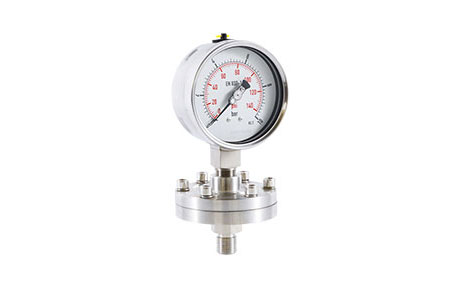What Is A Digital Pressure Gauge?
Key Takeaway
A digital pressure gauge uses electronic sensors to measure and display pressure readings. It provides high accuracy and is easy to read, even in low-light conditions.
These gauges are suitable for a wide range of applications, including industrial, automotive, and laboratory use. They are reliable, durable, and require minimal maintenance.
Introduction to Digital Pressure Gauges
Digital pressure gauges represent a significant advancement in pressure measurement technology, offering enhanced accuracy and ease of use compared to traditional analog gauges. They are widely used across various industries, including manufacturing, automotive, and healthcare, providing precise pressure readings essential for maintaining system performance and safety.
The introduction of digital pressure gauges has revolutionized the way pressure is monitored and controlled, featuring intuitive interfaces and advanced functionalities that simplify operation. Their ability to store and transmit data allows for better process management and decision-making. As technology continues to evolve, digital pressure gauges are increasingly becoming the standard choice for professionals seeking reliable and efficient pressure measurement solutions.

Key Features and Advantages
Digital pressure gauges come with several key features that enhance their functionality and performance. The primary advantages of digital gauges include:
Accuracy: Digital gauges provide more accurate and consistent readings compared to their analog counterparts. With electronic sensors, they can measure pressure with higher precision, ensuring that even small variations are detected.
Clear Display: The digital display presents pressure readings in an easy-to-read numerical format, eliminating the possibility of misinterpreting a needle’s position on a dial.
Multiple Units: Many digital pressure gauges can switch between different units of measurement, such as psi, bar, pascal, or kPa, offering versatility for various applications.
Data Logging and Remote Monitoring: Some digital gauges can record pressure data over time, making them useful for tracking performance and trends. They can also be connected to computer systems for remote monitoring and analysis.
Low Power Consumption: Unlike mechanical gauges that rely on physical movement, digital gauges are often more energy-efficient, especially when powered by batteries.
Applications of Digital Gauges in Modern Industries
Digital pressure gauges have a wide range of applications across industries that demand high accuracy and real-time pressure measurement. Some of the common industries that utilize digital gauges include:
Automotive: Digital pressure gauges are essential for testing tire pressure, engine fuel systems, and hydraulic systems to ensure optimal performance.
Medical: In medical equipment, digital pressure gauges are used for monitoring blood pressure, oxygen tanks, and other life-support systems where accuracy is crucial.
Oil and Gas: In oil rigs and pipelines, digital gauges provide continuous monitoring of gas or liquid pressures, helping to prevent system failures and ensuring safety.
HVAC Systems: Digital gauges are used to measure pressure in heating, ventilation, and air conditioning systems, ensuring the system operates efficiently and within safe pressure limits.
Pharmaceuticals and Laboratories: Digital pressure gauges are critical for controlling and monitoring the pressure in experimental setups or processes that require precise conditions.
Comparison with Analog Gauges
When compared to analog pressure gauges, digital gauges offer significant advantages, particularly in terms of accuracy and ease of use. Here’s a quick breakdown of the differences:
Accuracy: Digital gauges provide precise, repeatable measurements, while analog gauges can be prone to human error in reading the needle position.
Readability: Digital gauges display readings in numbers, which makes them much easier to interpret at a glance, whereas analog gauges may require careful interpretation of the needle’s position on the dial.
Advanced Features: Digital gauges offer advanced features such as data logging, remote monitoring, and the ability to switch between units of measurement. These capabilities are generally absent in analog gauges.
Durability: Digital gauges, while often more precise, may be more susceptible to damage from environmental factors like moisture or electrical surges. Analog gauges, in contrast, tend to be more durable in rugged environments.
Cost: Digital pressure gauges typically come at a higher price point compared to analog gauges due to the advanced technology involved.
Maintenance and Calibration of Digital Gauges
Maintaining and calibrating digital pressure gauges is essential to ensure their continued accuracy and performance. Here are some important steps in maintaining digital gauges:
Calibration: Digital gauges need to be regularly calibrated to maintain accuracy. This is typically done by applying known reference pressures to the gauge and adjusting the output readings to match the standard values.
Battery Maintenance: Since many digital gauges are powered by batteries, regular battery checks and replacements are necessary to avoid sudden malfunctions or loss of readings.
Cleaning: Keeping the sensor and display free of dirt and moisture is essential for the longevity of the device. Use dry, soft cloths and avoid exposing the gauge to extreme environments without proper protection.
Environmental Factors: Digital gauges should be installed in environments that protect them from electrical surges, extreme temperatures, or high humidity levels that can affect their functionality.
Conclusion
In conclusion, digital pressure gauges have revolutionized the way pressure is measured and monitored in various fields. These devices offer precision, ease of use, and the ability to display readings in different units, making them versatile for multiple applications. Digital gauges often come equipped with features like data logging, alarms, and wireless connectivity, enhancing their functionality and integration into modern systems.
Their accuracy and durability make them a preferred choice over traditional mechanical gauges, especially in critical environments where precise pressure readings are essential for maintaining operational safety and efficiency.
